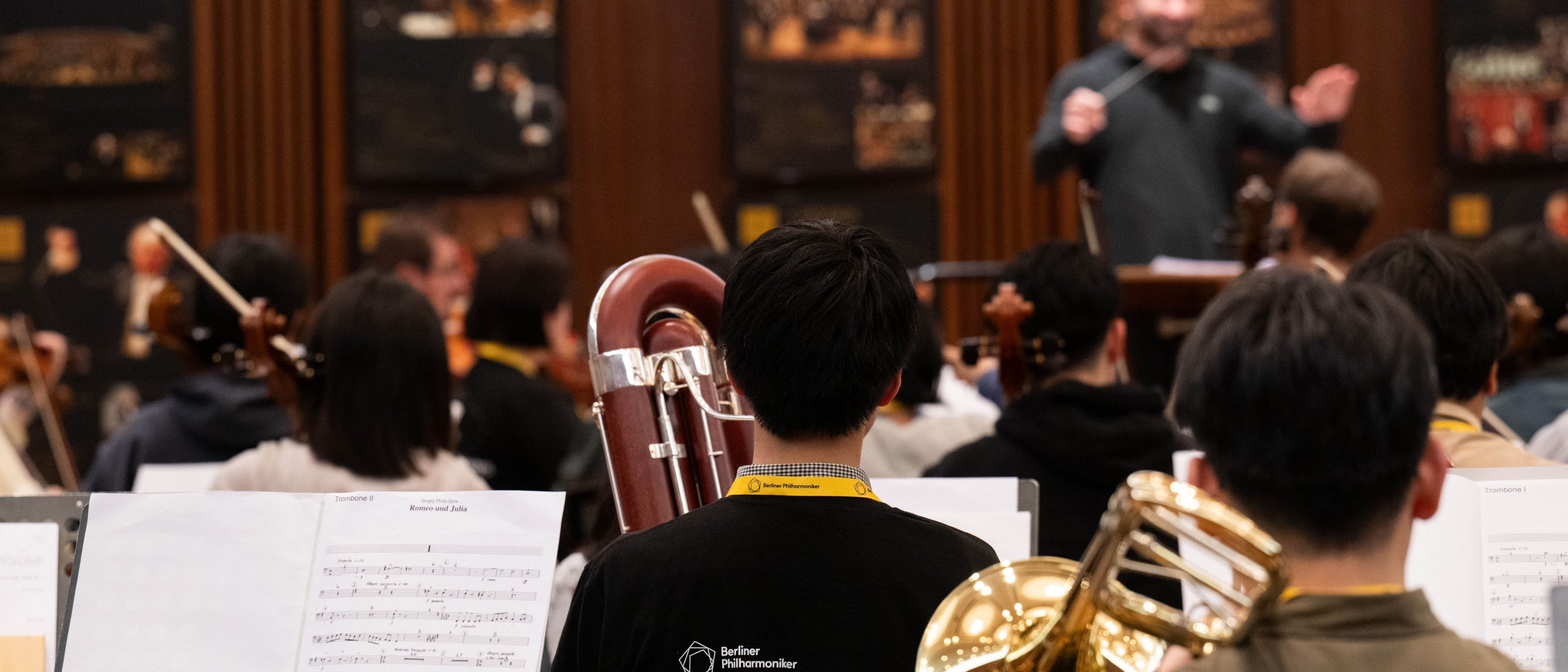
Be Yourself – Be Music – Be Phil
What connects us, the Berliner Philharmoniker, with classical music fans all over the world is a passion for classical music. This is why the project Be Phil Orchestra is very close to our hearts: amateur musicians work together with members of the Berliner Philharmoniker to prepare and play a concert programme.
Looking back: Be Phil Orchestra 2023
In November 2023, the Be Phil Orchestra went on tour in Japan. A specially compiled suite from Sergei Prokofiev’s Romeo and Juliet was performed under the baton of chief conductor Kirill Petrenko. The programme also included Johannes Brahms’ Double Concerto for Violin, Cello and Orchestra, conducted by Raphael Haeger, percussionist with the Philharmoniker. The solo parts were played by the Berliner Philharmoniker’s 1st concertmaster, Daishin Kashimoto, and the orchestra’s 1st principal cellist, Ludwig Quandt. Both works have been rehearsed by Raphael Haeger and other members of the Berliner Philharmoniker. The highlight was a concert conducted by Kirill Petrenko with the works by Brahms and Prokofiev at Suntory Hall on 26 November 2023.
Be Phil Orchestra in Japan
In collaboration with

